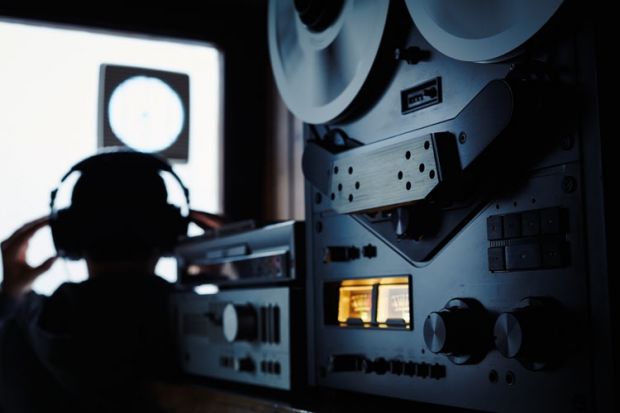Sound archivists estimate that we have only 15 years in which to digitise historic recordings - many of them invaluable to researchers in fields ranging from social history to musicology - before formats such as wax cylinders and acetate discs start to decay and the equipment required to play them is no longer available.
Over the five-year period from 2017 to 2022, therefore, the library will now digitise and make accessible 500,000 rare, unique and at-risk recordings from its own archive and other key British collections.
The material includes:
- writers from Lord Alfred Tennyson to Sylvia Plath reading from their own work;
- underwater recordings of killer whales, calls of long-extinct birds and a recording which helped to save the bittern from extinction in the UK;
- interviews with people from all walks of life, from Kindertransport refugees to second-wave feminists;
- previously unheard performances such as Sir Laurence Olivier playing Coriolanus in 1959;
- a complete archive of 50 years of services, choral and opera performances in Canterbury Cathedral;
- and the huge corpus of accents and slang, right across class and region, used for the 1950s Survey of English Dialects.
Along with preserving and digitising all this, the £9.5 million will enable the library and its partners to develop a national preservation network through ten regional centres of archival excellence.
It will also run a major outreach programme to celebrate the UK’s sound heritage, and raise awareness of the sheer range of living history held in archives across the country.




